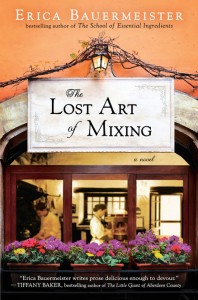These commenters won Ruby Urlocker’s collection:
Beth Hoffman
Anna of Diary of an Eccentric
Rebecca of Lost in Books
The winner of Erica Bauermeister’s book:
The winner of The Jane Austen Handbook:
Tina from Novel Meals
The winner of Pride & Prejudice & Zombies:
KarenK





 About the Author:
About the Author:




